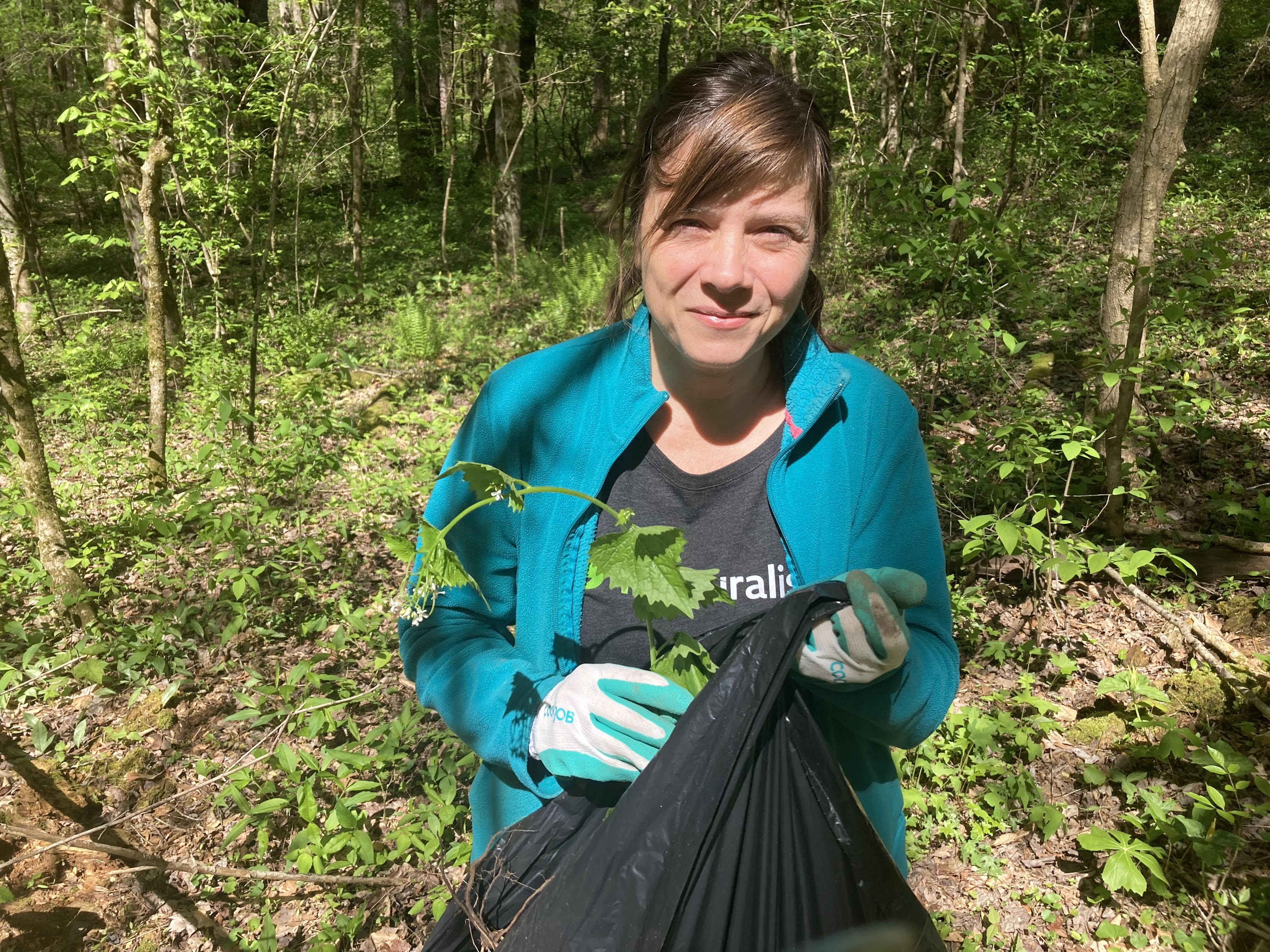Displaying items by tag: exotic invasive
Hybrid fire ants, born of foreign species, continue northward march
 A hybrid fire ant typical of those now seen in Lee County, Va. Virginia Tech scientists have teamed with the commonwealth’s agricultural extension service to find ways to combat the exotic insect. Cole Shoemaker/iNaturalist
A hybrid fire ant typical of those now seen in Lee County, Va. Virginia Tech scientists have teamed with the commonwealth’s agricultural extension service to find ways to combat the exotic insect. Cole Shoemaker/iNaturalist
Virginia Tech entomologists partner to help track and prevent the spread of hybrid fire ants
Case Keatley is communications coordinator at Virginia Cooperative Extension.
JONESVILLE, Va. — In Lee County, Virginia Cooperative Extension Agent Amy Byington is working to stop a tiny invader posing a big problem.
Hybrid fire ants, which are well-established across East Tennessee and parts of Kentucky and North Carolina, are now infiltrating far Southwest Virginia.
“It’s just one more nuisance,” said Byington, who leads efforts in her county to report and treat the growing issue. “I get calls every week from landowners who are discovering new ant mounds on their property.”
Byington partners with the Virginia Department of Agriculture and Consumer Services (VDACS) to locate and treat the mounds with insecticide bait.
“One of my producers recently reached out and reported they had found six fire ant mounds on their farm,” she said. “The VDACS inspector later ended up counting 58. It’s a management issue and a human issue.”
As of 2024, Lee County is the only county in Virginia with a presence of hybrid fire ants, although this is expected to change in coming years as ants gradually expand their territory north and east.
- hybrid fire ants
- are there fire ants in virginia
- invasive insects
- exotic invasive
- fire ants
- fire ants moving north
- virginia ag extension
- what is the range of fire ants
- southwest virginia
- how do i treat fire ants
- case keatley
- cooperative extension
- virginia tech
- entomology
- virginia department of agriculture and consumer services
- climate change
- range extension
- fire ant quarantine
- fire ant sting
- fighting fire ants
- fire ant identification
- transportation spread of fire ants in hay and wood
Resisting the alien invasion: Oak Ridge work party highlights threat of invasive plants
 Regina Santore with the Wild Ones Smoky Mountains Chapter puts garlic mustard into a bag during an April volunteer event along a greenway in Oak Ridge. Ben Pounds/Hellbender Press
Regina Santore with the Wild Ones Smoky Mountains Chapter puts garlic mustard into a bag during an April volunteer event along a greenway in Oak Ridge. Ben Pounds/Hellbender Press
Volunteers fight exotic and invasive garlic mustard on Oak Ridge greenway
OAK RIDGE — Plants from around the world are overrunning the Southeast’s wild places, causing problems for native flora and fauna.
It’s a problem that’s grabbed the attention and work of dedicated organizations. One of them, the Tennessee Invasive Plant Council has many strategies to solve this problem: volunteer weed-pulling events, guides to help gardeners find native plants from which to choose, and even legislation. Its vice president, Jamie Herold, has many thoughts on the issue. She was eager to share them over pizza after a morning of pulling one such invasive, garlic mustard, at an event in Oak Ridge organized by Tennessee Citizens for Wilderness Planning, and Greenways Oak Ridge.
The event involved pulling garlic mustard, a plant originally from Europe, from the edge of the woods behind apartments on West Vanderbilt Avenue. This area includes the Wildflower Greenway, a trail full of wildflowers that locals have been eager to protect from the garlic mustard’s domination.
- exotic invasive
- exotic species
- invasive plants
- invasive plant control
- invasive species
- oak ridge greenway
- garlic mustard
- tennessee invasive species
- tennessee invasive plant council
- jamie herold
- regina santore
- roger macklin
- wildflower greenway
- tennessee citizens for wilderness planning
- greenways oak ridge
- wild ones smoky mountains chapter
- biodiversity
Help control invasive exotic plants at cedar barren
Mar 6 9 a.m.–noon
Spring Cedar Barren Cleanup / Weed Wrangle
Cedar barren next to Jefferson Middle School, Oak Ridge
Tennessee Citizens for Wilderness Planning with City of Oak Ridge and State Natural Areas Division
Hands-on volunteer activity
Cedar Barrens — a habitat characteristic of our ecoregion — have become scarce in East Tennessee. They are reduced or eliminated by economic development and our rare native species specialized to live in them get overwhelmed by invasives.
For more information, contact Tim Bigelow at 865-607-6781 or This email address is being protected from spambots. You need JavaScript enabled to view it.
Specifics subject to prevailing conditions at time of event. COVID-19 precautions will be observed.